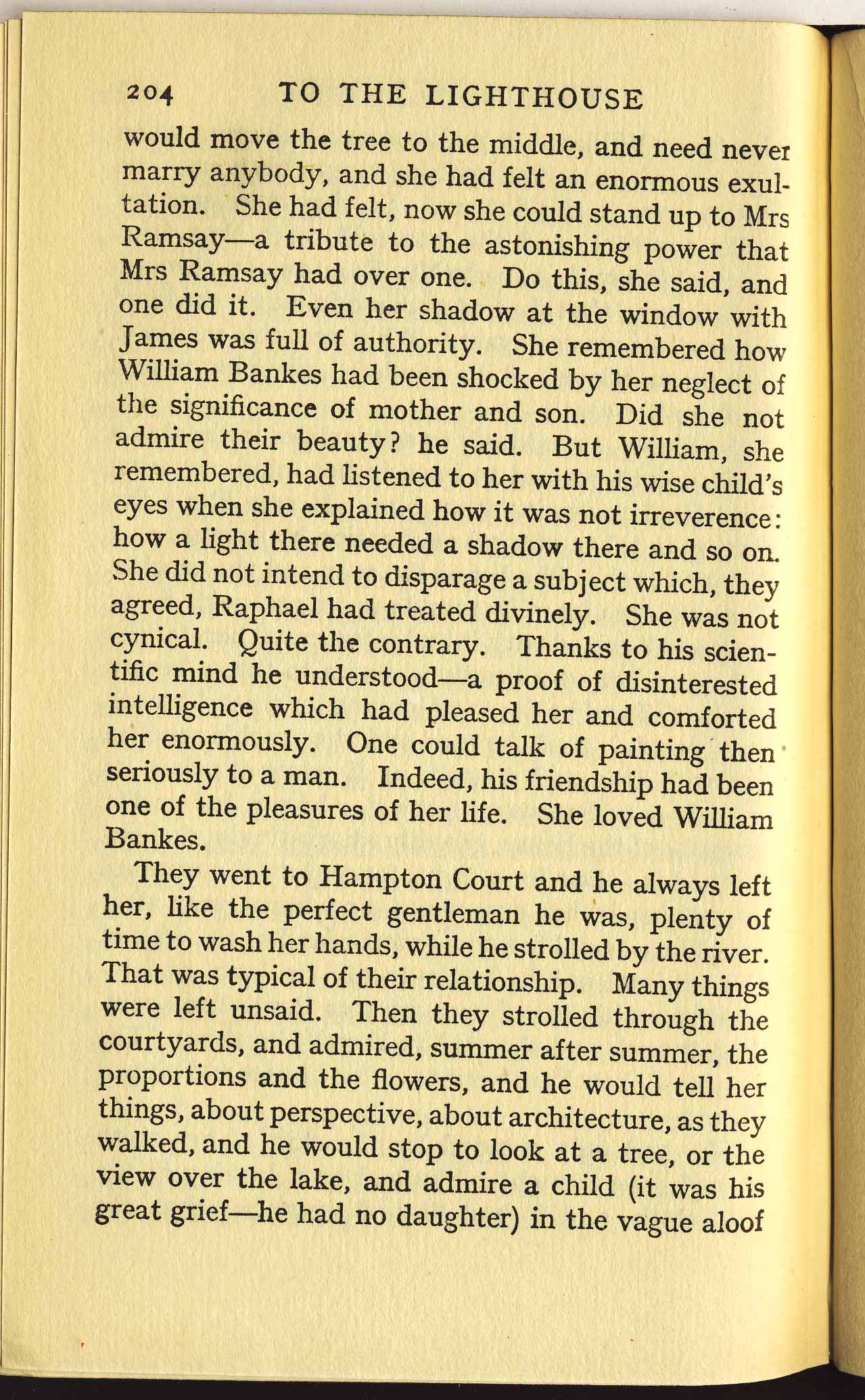
204 TO THE LIGHTHOUSEwould move the tree to the middle, and need nevermarry anybody, and she had felt an enormous exul-tation. She had felt, now she could stand up to MrsRamsay—a tribute to the astonishing power thatMrs Ramsay had over one. Do this, she said, andone did it. Even her shadow at the window withJames was full of authority. She remembered howWilliam Bankes had been shocked by her neglect ofthe significance of mother and son. Did she notadmire their beauty? he said. But William, sheremembered, had listened to her with his wise child’seyes when she explained how it was not irreverence:how a light there needed a shadow there and so on.She did not intend to disparage a subject which, theyagreed, Raphael had treated divinely. She was notcynical. Quite the contrary. Thanks to his scien-tific mind he understood—a proof of disinterestedintelligence which had pleased her and comfortedher enormously. One could talk of painting thenseriously to a man. Indeed, his friendship had beenone of the pleasures of her life. She loved WilliamBankes.
They went to Hampton Court and he always lefther, like the perfect gentleman he was, plenty oftime to wash her hands, while he strolled by the river.That was typical of their relationship. Many thingswere left unsaid. Then they strolled through thecourtyards, and admired, summer after summer, theproportions and the flowers, and he would tell herthings, about perspective, about architecture, as theywalked, and he would stop to look at a tree, or theview over the lake, and admire a child (it was hisgreat grief—he had no daughter) in the vague aloof









